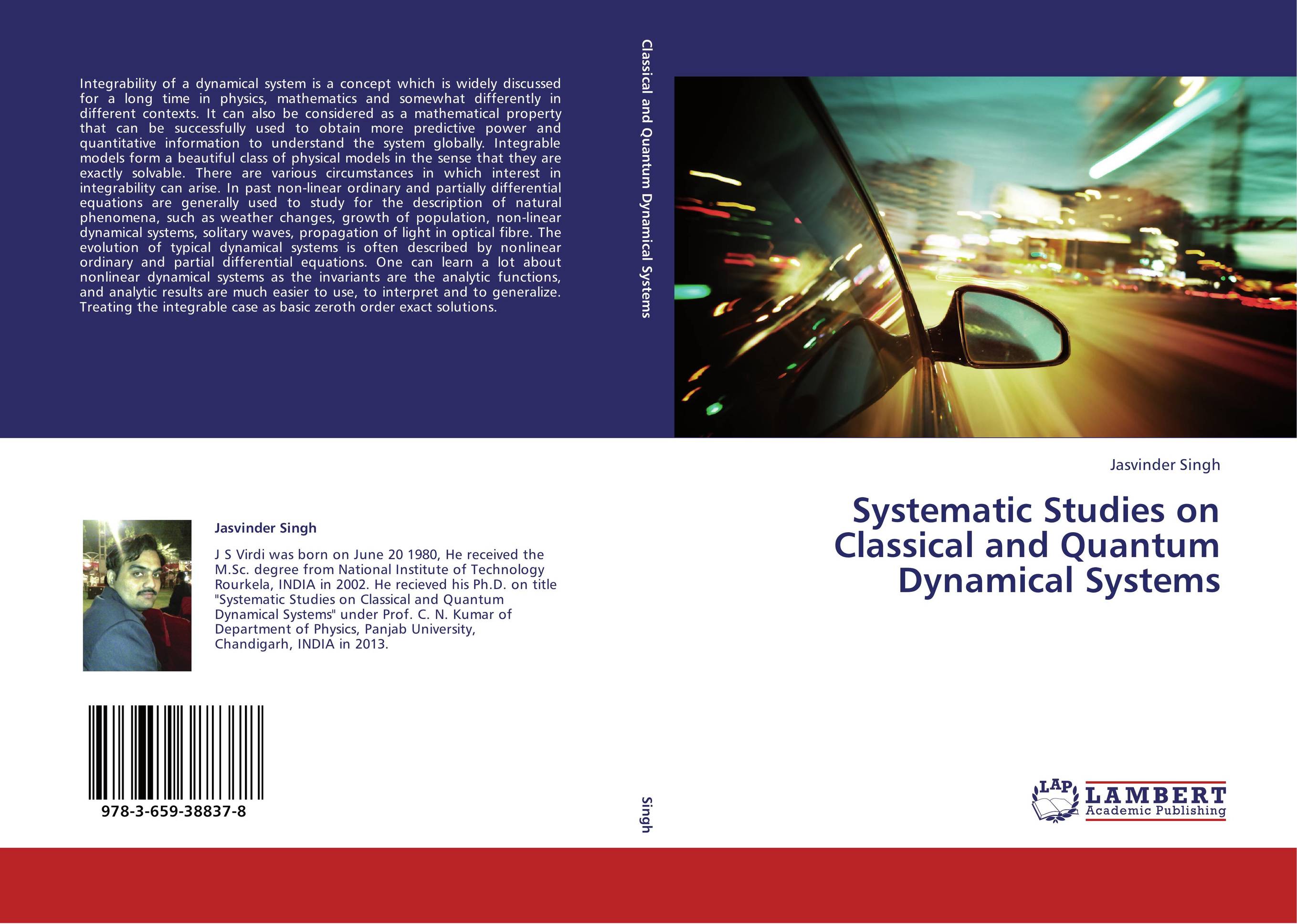| Поиск по каталогу |
|
(строгое соответствие)
|
- Профессиональная
- Научно-популярная
- Художественная
- Публицистика
- Детская
- Искусство
- Хобби, семья, дом
- Спорт
- Путеводители
- Блокноты, тетради, открытки
Systematic Studies on Classical and Quantum Dynamical Systems.

В наличии
| Местонахождение: Алматы | Состояние экземпляра: новый |

Бумажная
версия
версия
Автор: Jasvinder Singh
ISBN: 9783659388378
Год издания: 2013
Формат книги: 60×90/16 (145×215 мм)
Количество страниц: 212
Издательство: LAP LAMBERT Academic Publishing
Цена: 49932 тг
Положить в корзину
| Способы доставки в город Алматы * комплектация (срок до отгрузки) не более 2 рабочих дней |
| Самовывоз из города Алматы (пункты самовывоза партнёра CDEK) |
| Курьерская доставка CDEK из города Москва |
| Доставка Почтой России из города Москва |
Аннотация: Integrability of a dynamical system is a concept which is widely discussed for a long time in physics, mathematics and somewhat differently in different contexts. It can also be considered as a mathematical property that can be successfully used to obtain more predictive power and quantitative information to understand the system globally. Integrable models form a beautiful class of physical models in the sense that they are exactly solvable. There are various circumstances in which interest in integrability can arise. In past non-linear ordinary and partially differential equations are generally used to study for the description of natural phenomena, such as weather changes, growth of population, non-linear dynamical systems, solitary waves, propagation of light in optical fibre. The evolution of typical dynamical systems is often described by nonlinear ordinary and partial differential equations. One can learn a lot about nonlinear dynamical systems as the invariants are the analytic functions, and analytic results are much easier to use, to interpret and to generalize. Treating the integrable case as basic zeroth order exact solutions.
Ключевые слова: Non-linear dynamics, integrable systems, invariants, complex Hamiltonian, PT-symmetry, NLEE.



